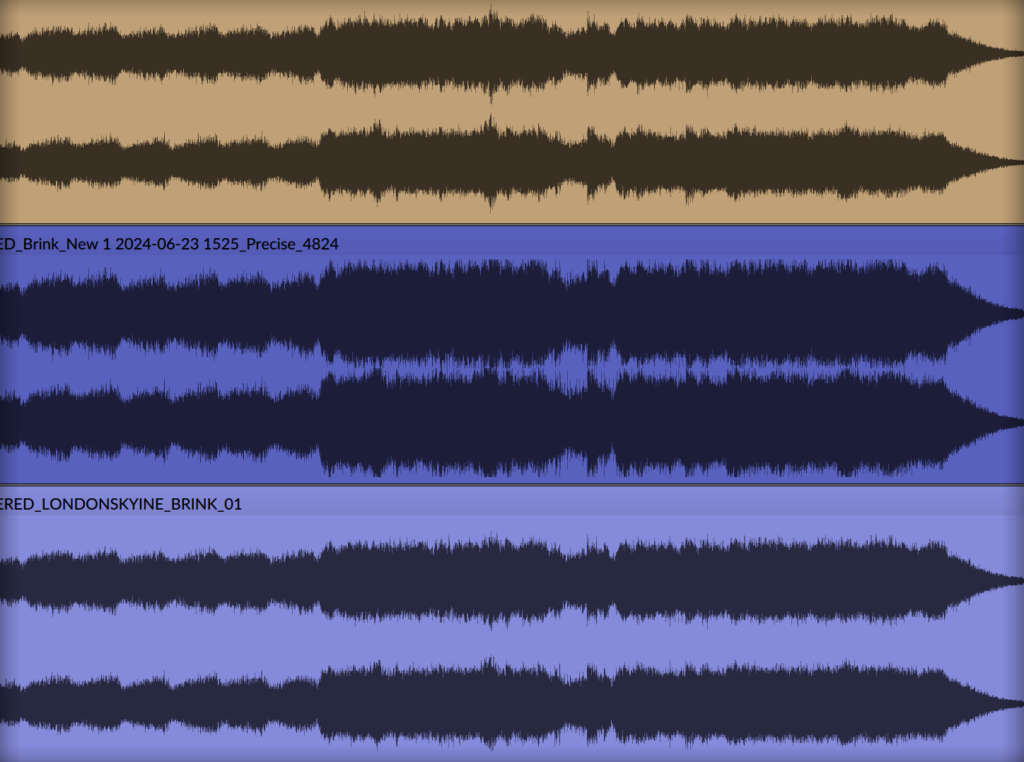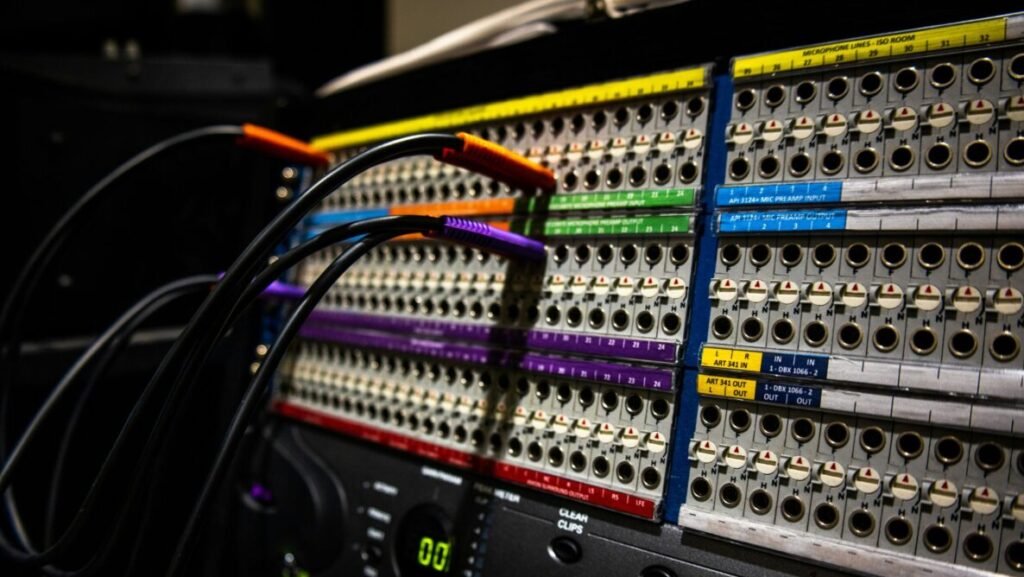Artificial intelligence and its supportive role has practically invaded most of the professional fields from journalism to audio engineering. There are plugins that aim to assist in different parts of the typical workflow, for example EQ-ing (more precisely, to prevent masking) but what really took off a couple of years of ago is AI mastering.
Online mastering gives what many of the AI-powered services promise: almost instantaneous results, at a very low cost.
And, seemingly most importantly: it is loud.
London Skyline is my own project but when I completed the debut album, I was impatient to finish up the project and turned to a very reputable online AI service. After having been professionally trained in mastering, I chose to remaster my own album with the plugins and hardware I use on my usual commissions as part of the services I offer. Just to show the difference, the three waveforms look as follows.

Top: premastered mix-ready version. (What is a Sjötta premaster? All details are HERE and how to send them after ordering, HERE.)
Middle: AI-mastered version.
Below: Sjötta Sound-mastered version.
Brink is a short, very moody, brooding, low-energy, tense but comtemplative piece.
Here is the AI-mastered version:
Here is the Sjötta Sound version:
Anybody who has read the very least about mastering, has encountered the – nowadays more and more ironically quoted – saying: louder is better. And this is where AI is wrong.
If you listen closely to the difference between the two masters, it becomes evident that the AI-master is louder – I tried to gain match them however – and more “in-your-face” while the Sjötta master – mastered by a human, or, organic intelligence 🙂 – is more detailed, more glued, more “compact”, yet warmer and more straightforward, and the latter serves the artistic intent more.
As I mentioned, the song in question is a slow-feeling, sprawling, contemplative piece that is out of the ordinary. Why is this important?
Because AI works on statistics and probability.
AI cannot be explained about artistic intent, it cannot feel what a song – let alone a song inside the context of an EP or album – should communicate.
AI might be fast and lighter on the costs but it simply cannot appreciate the factor that leads to a song sitting well with the other output of the given artist and it might probably not be on terms with what that artist had been doing. We are.

